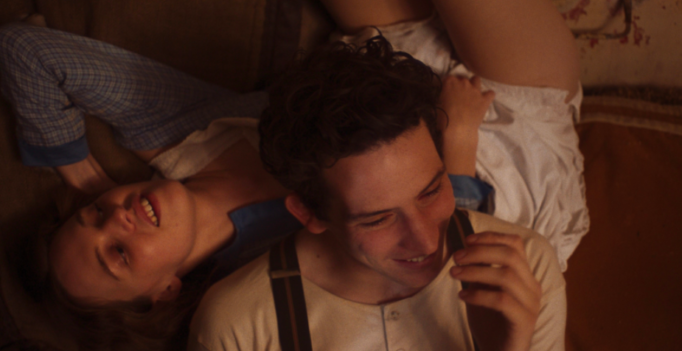Mothering Sunday is, at least, commendable for the swings it takes. Instead of following a typical period drama formula, director Eva Husson (Bang Gang [A Modern Love Story]) and screenwriter Alice Birch (Lady Macbeth) explore a titillating affair through several time-jumping perspectives. At first, it’s frustrating to keep up with the pace that’s further developing the romance between housemaid Jane Fairchild (Assassination Nation’s Odessa Young) and elite gentleman Paul Sheringham (Josh O’Connor of God’s Own Country). But eventually, the disjointed rhythm of Mothering Sunday finds its groove as the narrative becomes more segmented over the course of the film.
Despite the interesting ambition of its storytelling though, Mothering Sunday is still dull and confused. The performances by Young and O’Connor are good, as are the supporting appearances by Oscar winners Colin Firth and Olivia Colman. But, Birch’s screenplay (which she adapted from Graham Swift’s novel of the same name) either has her characters too tangled up in the dialogue or searching for motivation. Husson’s inconsistent direction contributes to the latter issue. For instance, scenes featuring a forlorn Jane wandering in the nude through Paul’s estate are supposed to have a delicate nuance to them as the maid inhabits a life she’ll never have. However, because of the belaboured length of these reflective moments and the odd placement of these moments, Husson misses the mark and turns Mothering Sunday into a “skin flick”. This is Mothering Sunday’s most extreme example, but the rest of the movie follows suit with botching its original intentions.
Mothering Sunday snaps into autopilot mode, and slips into the typical formula audiences thought the film had elevated itself above. Based on its efficiency, Husson’s mediocre drama receives a faint passing grade, though there’s still so much to be desired.
**********
Do You Tweet? Follow These Tweeple:
Addison Wylie: @AddisonWylie





Be the first to comment